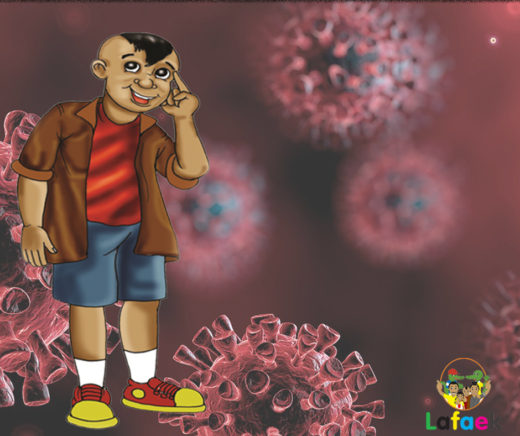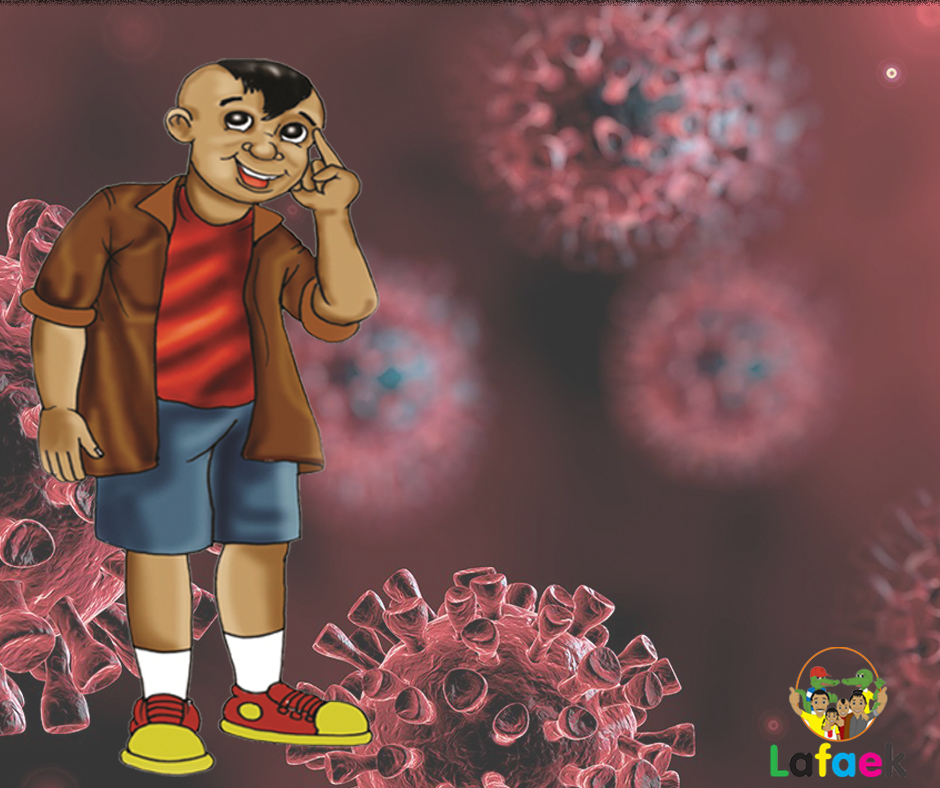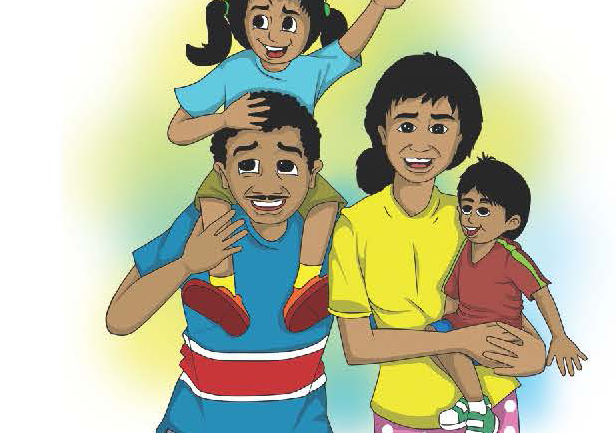Saida Mak Virus Corona?

Versaun Inglés Iha Okos
(Tetun)
Saida mak virus corona?
Virus corona mak grupu ida husi virus ne’ebé komún tebes iha animal no bele sai kauza ba moras wainhira tranzmite ona ba ema. Virus corona bele hamosu infesaun ne’ebé kmaan ba ema nian respiratóriu ka hamosu moras ne’ebé sériu ba ema. Moras COVID-19 hanesan tipu ida husi virus corona ne’ebé dadauk ne’e hamosu pandemia globál.
Virus corona nia sintoma mak saida no oinsá virus ne’e hada’et?
Virus ne’e tranzmite liuhusi inus, ibun ka husi individual ne’ebé infeitadu husi me’ar no fani. Virus ne’e mós bele tranzmite ba ema seluk bainhira sira kaer sasán ka objetu ne’ebé mak infeitadu ona no kaer fali sira nian matan, inus ka ibun. Sintoma husi virus ne’e mak isin manas, kole hela de’it, iis badak bainhira dada iis, iha balun mós esperiensia moras, inus metin, kakorok moras no diária.
Se ita iha sintoma hirak ne’e, parese la’os COVID-19, maibé tenke ba konsulta ho doutór.
Ha’u tenke preokupa ka?
Ema hirak ne’ebé mak infeitadu husi virus corona foufoun sei esperiensia moras kmaan, liuliu labarik no foin sa’e sira. Maibé virus ida ne’e bele kauza moras todan ba hirak ne’ebé ho idade avansadu ona no sira ne’ebé antes ne’e infeitadu ona ho moras ne’ebé hanesan. Organizasaun Mundiál de Saúde (OMS) hatete katak 1 husi ema na’in lima iha mundu mak infeitadu husi Virus Corona presiza halo tratamentu iha ospitál. Importante ba ema atu preokupa ho virus corona, maibé ita la presiza atu paniku.
Iha asaun importante barak ita bele halo hodi proteje ita nian-an, ita nian família no ita nian komunidade. Asaun importante primeiru mak mantén ita nian ijiene, espesialmente liuhosi fase liman beibeik no taka inus no ibun bainhira me’ar ka fani. Importante mós ba ita atu hetan informasaun ne’ebé loos no halo tuir instrusaun husi autoridade saúde lokál.
Tips oinsá atu mantén ita nian komunidade saudavel:
- Distánsia sosiál importante tebes, koko atu fó distánsia metru 1.5 entre ita nian an no ema seluk.
- Fase ita-nian liman beibeik kada 20 segundu ho sabaun no bee ou uza Hand sanitizer hodi virus ne’ebé mak belit iha ita nian liman.
- Labele kaer matan, inus no ibun, tanba ita-nian liman kaer ona area ka objetu infeitadu, ne’ebé ita kaer kona virus.
- Taka ita-nian inus no ibun uza liman sikun ou tisu bainhira me’ar ka fani, no so’e kedas tisu ba lixu.
- Hamoos ita nian lurón.
- Hadook an husi hirak ne’ebé mak infeitadu ona.
- Bainhira moras hela iha uma.
- Se karik sente isin manas, me’ar no susar atu dada iis tenke ba konsulta, ou kontaktu pesoál saúde ne’ebé besik.
- Mantén ita-nian an saudavel liu husi haan hahán ne’ebé nakonu ho nutrisaun.
Labele haluha atu:
- Kontaktu 199
- Mantén laran luak no tulun mós ema seluk.
- Asesu informasaun husi fonte ne’ebé konfiavel.
- Fornese informasaun ne’ebé loos ba labarik, kolega no família.
Atu hetan informasaun kle’an liu tan bele fonte hirak ne’e :
Timor Leste COVID-19 response website: https://covid19.gov.tl/en
Organizasaun Mundial de Saúde nian website: https://www.who.int/emergencies/diseases/novel-coronavirus-2019 no pájina Facebook: https://www.facebook.com/WHOTL/
Ministériu Saúde nian pájina Facebook: https://www.facebook.com/MinisteriodaSaudeTL/
—————————-
(English)
What is coronavirus?
Coronaviruses are a group of viruses that are common in many animals and can cause illness when transmitted to humans. Coronaviruses can cause respiratory infections in humans that may be mild or may cause severe illness. The most recent strain of coronavirus causes a disease called COVID-19.
What are the symptoms of coronavirus and how is it spread?
The virus is spread by small droplets from the nose or mouth of an infected individual when coughing, exhaling or sneezing. Other people can then catch the virus by touching infected objects or surfaces, then touching their eyes, nose or mouth. It takes 1-14 days after exposure to the virus for symptoms to develop. The main symptoms of the virus are fever, tiredness, a dry cough and shortness of breath, however some may also experience aches and pain, nasal congestion, runny nose, sore throat or diarrhea.
If you have these symptoms, parese laos COVID-19, but do consult a doctor.
Should I be worried about coronavirus?
Most people who contract coronavirus will only experience mild illness, especially children and young adults. However, it can cause serious illness in older people and those with pre-existing health conditions. The World Health Organization notes that approximately 1 in every 5 people who catch coronavirus need hospital care. It is understandable for people to be concerned about how coronavirus will affect them, but we should not cause unnecessary panic.
There are important actions we can take to protect ourselves, our families and our communities. The first most important action is keeping proper hygiene, especially through frequent hand-washing and covering coughs and sneezes. It is also important to stay informed and follow the advice of local health authorities.
Tips for keeping our community healthy:
- Social distancing is important – try to keep at least 1.5metres between yourself and others.
- Wash your hands frequently and for at least 20 seconds with soap and water or hand sanitizer to kill any virus that might be on your hands.
- Avoid touching eyes, nose and mouth because hands touch many surfaces and can pick up viruses.
- Cover your nose and mouth with your bent elbow or a tissue when sneezing or coughing. Dispose of any used tissues immediately.
- Keep your surrounding environment clean.
- Avoid close contact with those who are sick.
- Stay home if you are unwell.
- If you have a fever, cough and difficulty breathing seek medical advice early. Call your doctor in advance.
- Keep your body healthy by eating nutritional food.
And remember:
- Call 119
- Be kind and support one another.
- Obtain information from reliable and trusted sources.
- Provide calm and correct advice to children, friends and family.
For more information, visit;
The Timor Leste COVID-19 response website: https://covid19.gov.tl/en
Timor Leste COVID-19 response website: https://covid19.gov.tl/en
The World Health Organisation website: https://www.who.int/emergencies/diseases/novel-coronavirus-2019 and Facebook page: https://www.facebook.com/WHOTL/
and the Ministry of Health Facebook page: https://www.facebook.com/MinisteriodaSaudeTL/
Author: Samantha O’Hara




